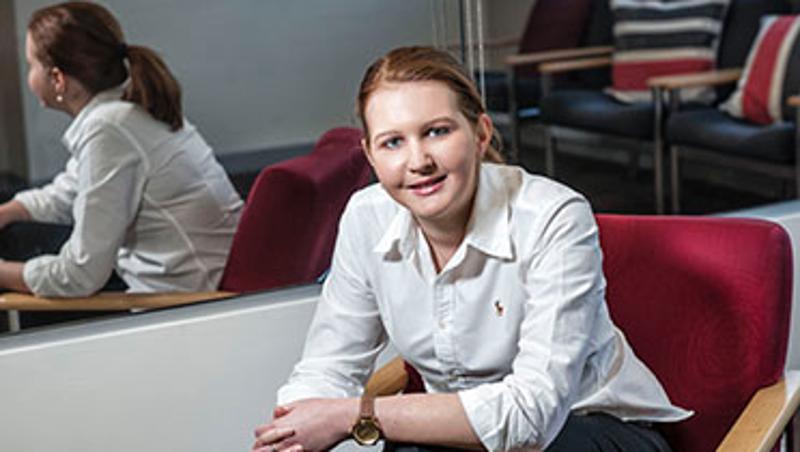
QUT research will investigate whether a pioneering new therapy can "change" traumatic memories to benefit people living with bulimia.
Provisional Psychologist and professional doctorate researcher Katie Vivian, from QUT's School of Psychology and Counselling, is looking for participants to receive a new type of psychotherapy the research team has called Memory Reconsolidation Therapy.
The research team is looking for people aged 18 and over who have a diagnosis of bulimia nervosa and who have experienced a past traumatic event or events. This could include emotional and/or psychological (i.e. bullying), physical, or sexual abuse prior to developing bulimia nervosa.
Ms Vivian said a previous survey of 176 people with bulimia nervosa found 80 per cent had experienced emotional abuse, 41 per cent physical abuse and 25 per cent sexual abuse.
"When an individual experiences a traumatic event, the fear memory associated with this event is very strong and can impact greatly on a person's daily life," she said.
"For some people, after a traumatic event they may experience flashbacks, anxiety, or feel as though they are always on alert or in a flight or fight mode.
"These symptoms can be very difficult to cope with and can continue to impact on a person's life for many years after the event.
"It is thought that for some individuals the fear memories may play a role in maintaining the symptoms of bulimia nervosa, including binge eating episodes."
Ms Vivian said the therapy the research team had developed aimed to help individuals manage traumatic memories and "reduce the fear" associated with the memories.
"We imagine memories as being quite stable but they are actually susceptible to change," she said.
"We want to tap into how to reduce the impact and distress of fear memories."
Approaching the treatment in a "systematic way", participants would be encouraged to re-tell their traumatic memories in 12-16 private, safe and controlled sessions at the QUT Kelvin Grove Campus.
"Most people understandably want to avoid horrible memories," Ms Vivian said.
"Some traditional therapeutic approaches are a bit like throwing a blanket over that original fear memory. But what many people find is that down the track the blanket slips off and the trauma of the memory returns.
"Our therapy is not trying to block out a memory, but alter the fear associated with it. We go through the memory until the intense fear that was once associated with the memory is reduced."
It is possible that involvement in the project may benefit people living with bulimia by helping to reduce the symptoms associated with the condition.
For more information or to take part in the therapy, please contact the research team for details:
Katie Vivian, Katie.vivian@connect.qut.edu.au
Dr Esben Strodl, 07 3138 8416, e.strodl@qut.edu.au
Media contact:
Rob Kidd, QUT Media, 07 3138 1841, rj.kidd@qut.edu.au
After hours, Rose Trapnell, 0407 585 901


